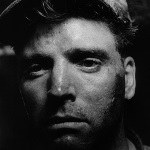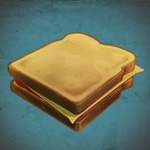|
opus111 posted:np, always happy to share good music. Can I ask what you love about Op.111? I started listening to it a lot recently and I think it's amazing (the last movement mostly). You've probably listened to it many times more than me though, what do you get out of it? How does it make you feel? I can't realise what it's trying to convey I just know I like it and that it's my favourite of the 32. krampster2 fucked around with this message at 09:09 on Jun 17, 2015 |
|
|
|

|
| # ? May 10, 2024 09:01 |
|
Thomas Mann said it better than I ever could in Doctor Faustus. I dunno I'm not too smart, I just fell in love with the Arietta the first time I ever heard it because it's just an amazingly sad and sincere melody, and it sounds like something that should have been written hundreds and hundreds of years ago, like its an inevitable piece of music. But I also feel that way about Ode to Joy. Beethoven is like Mozart in that respect - he seemed to unlock stuff that was waiting to be discovered. Then gradually over time I also fell in love with each variation. Mostly I like how its so different to all of his previous stormy work. That serenity and acceptance of life, looking back at all of its tragedies with no anger left, it's like coming out of a tunnel and into a bright light. It matches my own take on life. Beethoven is the same as Dostoyevsky for me. Finding these two guys gave me a pivot to balance all my thoughts on, feeling that they understand me completely even though they lived in a time so different to me, that idea of shared humanity being such a universal thing. And each one has a masterwork that all of their thoughts and innovations are compressed into, and with beethoven that's 111. Musically, it's the final word in piano music, imo. All the stuff that came afterwards, all the romantics and contemporary stuff is just childish and tawdry in comparison. It's reaction, not creation - but that's just how I feel.
|
|
|
|
you should ask a goon who can actually play it though, I can only pick at sections of it.
|
|
|
|
opus111 posted:That serenity and acceptance of life, looking back at all of its tragedies with no anger left, it's like coming out of a tunnel and into a bright light. That puts it well I think.
|
|
|
|
Mahler posted:If you like Schoenberg, you might like Roger Sessions, who moved from spiky Stravinsky influenced neo-classical style (Black Masker's Suite) to intense chromaticism cum atonality (Violin Concerto and 2nd Symphony) to full blown idiomatic use of 12-tone music. I'm particularly fond of the 3rd Symphony, I just wish there was more than the one lackluster recording of it! Yeah, I know he's an acquired taste. gently caress all y'all. This was all absolutely fantastic, and the kind of stuff I was really looking for. I quite appreciated it! I have been listening to and working my way through everything here this past week. The more music I discover, the more I wish I had a greater understanding of it- so that I could actually describe what I enjoy, or to follow along with others. Eh, it's enough that it's enjoyable I suppose.
|
|
|
|
You're never too old (or young!) to pick up an instrument and start learning. Playing music at a community band level as an amateur musician has been one of the most fulfilling hobbies I've ever picked up. It's lots of fun, the groups are usually filled with great people, and there's nothing like playing music together with others. It's also basically the best brain workout you can do. If you lean more towards orchestra stuff, picking up something like a cello(which, although I don't own one, I fully intend to learn at some point) or any of the other string instruments, you're probably going to be spending several months in private lessons before you start getting to a level where you'd want to play with others. If you're okay with joining a community wind band (think high school/military band instrumentation), you could be playing in a group sooner, and there tends to be more community wind bands then orchestras around. Their repertoire leans a lot less away from the type of music that you see posted in this thread, but there's a huge body of fabulous wind band repertoire out there so it's cool. Speaking of, I should find some of said great repertoire and post it because it's awesome
|
|
|
|
To put it simply- I uh, have some issues with disabilities that makes picking up an instrument a little more difficult. Never too late to learn theory, I suppose. I just wish I knew more what a Scherzo or Adagio was, to be able to identify it the way I see others doing.
|
|
|
|
Quantumfate posted:To put it simply- I uh, have some issues with disabilities that makes picking up an instrument a little more difficult. Never too late to learn theory, I suppose. I just wish I knew more what a Scherzo or Adagio was, to be able to identify it the way I see others doing. Sorry about that! Well, to be honest, I personally find theory without the practical application to be dreadfully boring, but I have a feeling there's probably books out there that are more oriented towards listeners rather then performers that are good.
|
|
|
|
Quantumfate posted:This was all absolutely fantastic, and the kind of stuff I was really looking for. I quite appreciated it! I have been listening to and working my way through everything here this past week. The more music I discover, the more I wish I had a greater understanding of it- so that I could actually describe what I enjoy, or to follow along with others. Eh, it's enough that it's enjoyable I suppose. James The 1st fucked around with this message at 05:33 on Jun 24, 2015 |
|
|
|
James The 1st posted:I wouldn't worry about, there's not really much you can talk about why you like a piece of music. Music is something that has to be heard. Yeah, for sure. There's no one specific way to "get" a piece. Satisfaction can arise from any number of approaches to listening. Actually, sometimes I wish I could go back to being completely overwhelmed by Strauss tone poems and Mahler symphonies. The chills are few and far between now 
|
|
|
|
Quantumfate posted:To put it simply- I uh, have some issues with disabilities that makes picking up an instrument a little more difficult. Never too late to learn theory, I suppose. I just wish I knew more what a Scherzo or Adagio was, to be able to identify it the way I see others doing. Aaron Copland wrote a book about form & major concepts in classical music: What to Listen for in Music. It's written for beginners, and you should be well on your way to being able 2 identify major forms after you read it.
|
|
|
|
Mederlock posted:You're never too old (or young!) to pick up an instrument and start learning. Playing music at a community band level as an amateur musician has been one of the most fulfilling hobbies I've ever picked up. It's lots of fun, the groups are usually filled with great people, and there's nothing like playing music together with others. It's also basically the best brain workout you can do. I would love to play an instrument but am a poor as hell student so can't afford lessons or an instrument. Hopefully next year I'll be able to pick something up but I have no idea what to play, I keep changing my mind constantly. On one hand the piano is easily my favourite instrument for solo play, but on the other hand I'll never be able to play with a band or orchestra. One week I think piano, next week I think bassoon or something then maybe tuba. I will never make up my mind, why is life so hard?
|
|
|
|
Piano is one of those instruments your better off learning on the side after you've started playing something else, at least if it's for recreational playing, imo. It's extremely useful to have, especially if you're willing to get up to a level where you can accompany people or play duets with another instrument, because piano+solo instrument duets are great. But yeah you won't really be able to play with others in a group as you said. I'd recommend considering one of the instruments that arent as common, because you'll always be in demand and fill in holes in the ensemble that otherwise would be left empty. Stuff like bassoon/oboe/euphonium/maybe French horn(there's tons of terrible French horn players because of how hard it is to play it well)/tuba/bass trombone are all kind of like that. I don't have any experience with community orchestras and which instruments tend to have less people.
|
|
|
|
Mederlock posted:I don't have any experience with community orchestras and which instruments tend to have less people. Strings. Viola, bass, cello, violin, in that order. But even violin, by far the most common of the four, is almost always in demand. And there's probably not a single amateur orchestra in the world that's not desperately looking for violas. But if you're looking for something that's relatively easy/quick to learn, strings are probably not the answer.
|
|
|
|
yeah i often want to start playing strings, then i remember the hours and hours of screeching that came from my brother's room before he could do anything simple. if you want to learn an instrument for the orchestra i would go for the clarinet or french horn, both are really beautiful imo.
|
|
|
|
Horns are expensive though  I vote learn viola. You can get a decent-ish one for $500ish, and alto clef won't annoy the heck out of you like it does most music readers. I vote learn viola. You can get a decent-ish one for $500ish, and alto clef won't annoy the heck out of you like it does most music readers.
|
|
|
|
I actually played the viola in high school for a couple years. It was alright but I was pretty crappy at being on tune; wasn't into classical music then either so was rather uninspired. It's true though that they are in need, I got thrown into the strings group basically day one, which was kind of insane considering how good my school's orchestra was. I keep coming back to the idea of learning the bassoon though, it seems pretty awesome, especially with that crazy wide range. But drat, bassoons are not cheap. E: You can even get jazzy with the bassoon if that's your thing, https://www.youtube.com/watch?v=cKBrnjxlKgU krampster2 fucked around with this message at 07:35 on Jun 26, 2015 |
|
|
|
If you are interested in playing in a community orchestra sooner than later then I would highly recommend playing a stringed instrument, especially if you already have experience on a stringed instrument. You'll most likely progress more quickly since they are pack animal instruments and you can learn a lot from playing with your stand partner if they are any good. (This is true for all instruments, but in an orchestra the wind instruments often have much more independent parts from each other.) Also, unless you are attending a school with a pretty serious music program you can play in the school orchestra. Though if you also want to play in a concert band or jazz band then obviously that is an entirely different matter!
|
|
|
|
Cobaltshift posted:If you are interested in playing in a community orchestra sooner than later then I would highly recommend playing a stringed instrument, especially if you already have experience on a stringed instrument. You'll most likely progress more quickly since they are pack animal instruments and you can learn a lot from playing with your stand partner if they are any good. (This is true for all instruments, but in an orchestra the wind instruments often have much more independent parts from each other.) Also, unless you are attending a school with a pretty serious music program you can play in the school orchestra. Though if you also want to play in a concert band or jazz band then obviously that is an entirely different matter! You're probably right but I'm just not that into instruments without fixed notes, when I played the viola I remember having a pretty terrible sense of pitch. Any Instrument with fixed notes that gets interesting music written for it will do for me. On an unrelated note I've been listening to Dvorak's Requiem recently, it's fantastic and definitely going on my favourites list. I don't know why it isn't more widely performed outside of the Czech Republic. Well, other than because it's 100 minutes long. Thanks James The 1st for the rec!
|
|
|
|
krampster2 posted:You're probably right but I'm just not that into instruments without fixed notes, when I played the viola I remember having a pretty terrible sense of pitch. Any Instrument with fixed notes that gets interesting music written for it will do for me. Some other requiems that I think are really good are Faure's and Durufle's. Beautiful singing.
|
|
|
|
If you liked a requiem, you should definitely check out Beethoven's Missa Solemnis. It's up there with the Ninth as one of his crowning achievements imo
|
|
|
|
James The 1st posted:You're welcome. It's pretty badass isn't it? I can attest to Faure's being good for sure
|
|
|
|
Mederlock posted:If you liked a requiem, you should definitely check out Beethoven's Missa Solemnis. It's up there with the Ninth as one of his crowning achievements imo Mass in C is really good, too.
|
|
|
|
Every instrument definitely has its intonation issues that must be overcome but I definitely understand! At the end of the day pick the instrument you enjoy the most (both in terms of the act of playing and the timbre and music for it.) If you have Spotify there are quite a few good recordings of the Dvorak Requiem, my personal favorite is from the Royal Concertgebouw Orchestra (arguably one of the best orchestras out there, but I may be biased because I'm a brass player....)
|
|
|
|
Cobaltshift posted:Every instrument definitely has its intonation issues that must be overcome but I definitely understand! At the end of the day pick the instrument you enjoy the most (both in terms of the act of playing and the timbre and music for it.) If you have Spotify there are quite a few good recordings of the Dvorak Requiem, my personal favorite is from the Royal Concertgebouw Orchestra (arguably one of the best orchestras out there, but I may be biased because I'm a brass player....) Thanks I'll try out that recording. I was listening to the Royal Flemish Philharmonic's recording which is also and Spotify. Spotify is a pretty awesome platform for classical music, I'd recommend people ITT give it a go.
|
|
|
|
80k posted:- Brahm's Clarinet Quintet Been listening to this today, it's good. I haven't explored Brahms as much as I probably should because what I've heard of his chamber works have been pretty awesome. Only recently I learnt he was a Romantic period composer which is not what I had assumed from listening to his music haha. His music sounds to me like a weird blend of periods, it's got the technical points of the Baroque period, but the ideals of the Romantic period. Although I have no idea what I'm talking about really, thanks for the recommendation 80k. Also now I'm interested in the clarinet, after hearing just one half hour piece. God dammit, why is my brain like this? krampster2 fucked around with this message at 10:59 on Jul 4, 2015 |
|
|
|
best listen to this then: https://www.youtube.com/watch?v=l3EJqvKhYzY
|
|
|
|
krampster2 posted:Can I ask what you love about Op.111? I started listening to it a lot recently and I think it's amazing (the last movement mostly). You've probably listened to it many times more than me though, what do you get out of it? How does it make you feel? I can't realise what it's trying to convey I just know I like it and that it's my favourite of the 32. This is a bit back now but I wanted to answer too since it's also my favourite of his sonatas (even if only by a small amount). It was the last sonata he wrote, piano or otherwise, and he knew it at the time, having started work on it at the same time as opus 109 and 110. It feels to me like a summing up of all his work on the sonata form, and a farewell to the form as well, and even a farewell to the piano . He did write more things for the piano afterwards, but this really felt like the ending of his piano stuff to me. The first movement is ugly, aggressive and fast. It represents all of his early and middle periods - huge chords, fast unison passages, lurching dynamics and tempos. It's not "pretty" music in any sense. It's not pretty to play either - you really can't and shouldn't try to smooth things out in it. He writes accents in weird places, puts something in FF and then immediately repeats it slower and P. It's meant to be unrefined. It ends on what's called a "picardy third", ending in a C major chord rather than the expected C minor. After all that tension and anger/whatever you want to call it, we go straight into a major key, very peaceful, beautiful and simple theme. This is why the sonata being in two movements is so clever to me - as the last sonata, a farewall to the form, he writes something with two completely contrasting styles. Loud and soft, angry and beautiful. There's no need for a third movement to bring things to a close. The sonata just ends and that's it, good bye. The second movement is the one most people talk about. It starts off as a very basic set of variations on a theme, following the standard format of increasing the note values each time. But then it hits an almost ecstatic section, which sounds very similar to boogiewoogie music in nature. This is religious ecstacy to me. And then suddenly, in 6 notes, it drops down to nothing - all you hear is echos of the chord progressions from earlier and a gentle tremelo. All this is in the bass, and to me it's beethoven representing the earth, the mortal world. Then an incredibly quiet, almost ethereal theme rises out in the soprano. This is the heavens. Then finally, he brings it together in the middle, which to me represents us, humans stuck between the earth and heaven. This is quite possibly my favourite bit of music ever - an ascending sequence of trills, and then a theme in the deep bass and highest notes (in beethoven's time, those were literally the lowest and highest notes on the keyboard). It's such a yearning, but still tranquil section. Finally, the theme returns in a new form, full of arpeggios and joy, getting louder and louder, faster and faster, until finally it goes so fast that it's just a trill. The theme repeats under this trill, just a single note at a time, and eventually transforms into an ascending scale, and finally finishes off with chords and a rest. The rest is important - it's the last thing in the music, so you don't really "hear" it, but it's thematically crucial. It says very clearly "we're done, that's it". To me, the second movement represents beethoven's spirituality - we start on earth, before ascending to the heavens, and then silence. A farewell to both the musical form itself, but also in general. Beethoven was never one for "tone painting" or program music, and this sonata certainly wasn't written as an actual analogue to life or anything, but the message he was communicating was clear. It's the perfect example of "art music" to me because it's got meaning and symbolism, but it still sounds good. I could probably rant on for longer about it, but that's why I like it.
|
|
|
|
opus111 posted:best listen to this then: This is pretty good and I don't listen to a lot of Mozart, thanks for the music. I love how the clarinet sounds so different across it's registers, imo it sounds awesome in the low register, like the beginning of Tchaikovsky's 5th which I listened to yesterday. megalodong posted:This is a bit back now but I wanted to answer too since it's also my favourite of his sonatas (even if only by a small amount). Wow! Is that your Doctor of Musical arts thesis? Thanks for writing that. I've felt recently too that the piece is a sort of goodbye to music and the world, nice to see I'm not alone in that thinking and also to hear it from you in greater depth. Now I'm gonna go listen to it again. E: Also I should ask, what's your second favourite of the 32? You said opus 111 was your favourite but only by a small amount. I can't really think of much else that comes anywhere near it tbh. krampster2 fucked around with this message at 09:19 on Jul 6, 2015 |
|
|
|
krampster2 posted:Wow! Is that your Doctor of Musical arts thesis? Thanks for writing that. Haha nah, music just happens to be my big passion. And I'm a goon so I never pass up an opportunity to effort post about it. My second favourite is the Waldstein sonata. It's actually kinda hard to say, since they're all brilliant, but that one does win out by a bit. The Appassionata is up there too, but it suffers a bit from being one of the 3 sonatas everyone records (moonlight, appassionata, pathetique in one album). As to why I like it so much? It's really revolutionary in what it did for piano writing - prior to that, the piano was basically composed for as just a piano. But the waldstein transformed it into something that could imitate an entire orchestra, something you'd then see to an even greater extent from Lizst later on with things like La Campanella.
|
|
|
|
Is there any other rendition of Mendelssohn's Midsummer Night's Dream that can match Peter Maag's? His 1957 recording is one of the most magical things I've ever heard, but I'm wondering if there's anything out there that's just as breathtaking while being a bit more contemporary.
|
|
|
|
Rollofthedice posted:Is there any other rendition of Mendelssohn's Midsummer Night's Dream that can match Peter Maag's? His 1957 recording is one of the most magical things I've ever heard, but I'm wondering if there's anything out there that's just as breathtaking while being a bit more contemporary. I've never heard the Peter Maag version, but the one with Judi Dench reading the lines and Seiji Ozawa conducting is really good. I think it was recorded in the 90's.
|
|
|
|
Had a lie down in the grass at the park today and listened to Beethoven's 6th. Good symphony to listen to at the park imo
|
|
|
|
That sounds amazing. The Pastoral is one of my favourite Beethoven symphonies tbh, it's my favourite music to listen to in the morning E: and the 4th movement is what I use for my alarm in the morning. Starts off quiet and then BAM the 'storm' strikes with a mighty timpani roll and I practically jump out of bed from the shock everytime Mederlock fucked around with this message at 19:23 on Jul 12, 2015 |
|
|
|
You guys should watch this old BBC documentary about conductors, how nasty they can be and how terrible at their jobs they often are. Pretty eye opening and interesting stuff. https://www.youtube.com/watch?v=51WX3yzTML0 Have any of the musical goons in this thread had run ins with terrible conductors before?
|
|
|
|
krampster2 posted:Have any of the musical goons in this thread had run ins with terrible conductors before? A few years ago my guitar duo partner played a solo concert with orchestra in Azerbaijan. The conductor (who worked and lived in Europe) was apparently extremely nervous as it was his debut concert in his native country. A few minutes before the concert started he would burst into the backstage room where my friend prepared and yell at her that she better had to play perfect because else it would be a desaster of incredible proportions. Best thing to do with a young musician. The concert went well and he was much more relaxed afterwards, but he never apologised.
|
|
|
|
Honj Steak posted:A few years ago my guitar duo partner played a solo concert with orchestra in Azerbaijan. The conductor (who worked and lived in Europe) was apparently extremely nervous as it was his debut concert in his native country. A few minutes before the concert started he would burst into the backstage room where my friend prepared and yell at her that she better had to play perfect because else it would be a desaster of incredible proportions. Best thing to do with a young musician. Could have been worse: https://www.youtube.com/watch?v=KUGL5uZDSc8 Joke video! Gotcha!
|
|
|
|
Why is classical singing deteriorating and becoming worse and worse over the years? Anyone wanna help a fellow goon out? 
|
|
|
|
Honj Steak posted:A few years ago my guitar duo partner played a solo concert with orchestra in Azerbaijan. The conductor (who worked and lived in Europe) was apparently extremely nervous as it was his debut concert in his native country. A few minutes before the concert started he would burst into the backstage room where my friend prepared and yell at her that she better had to play perfect because else it would be a desaster of incredible proportions. Best thing to do with a young musician. I had a friend who played for Karajan in Israel and when Karajan said settle down friends the timpanist stood up and said 'you are not my friend!' Because he is a nazi. Wyw fucked around with this message at 12:18 on Jul 23, 2015 |
|
|
|

|
| # ? May 10, 2024 09:01 |
|
So I've been on a big Romantic/Beethoven spurt for a while now, and I've decided I'd like to take a few steps back. I would really like to get into some Mozart; what's a good list of his best works?
|
|
|



















